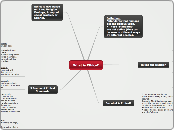What is Ethics?
Definition:
*Standards that humans
act and behave upon.
* These "standards"
are not define (they can
be seen in different ways
by different people).
Taking the Decision
Recognize an ethical issue:
It's an issue where a group
of people is subjected to harm.
Getting the Facts:
Gather all relevant facts
of the case.
Evalutate Alternative Actions:
Evaluate each approach, it's
procedures and consequences.
Decide and test.
Reflect on the Outcome:
Gains and Consequences.
So, what is Ethical?
* The 5 approaches did not
make "Ethics" clear, in fact, contradictions
occured.
Example: The Utilarian approach can
accept the harm of a small sample of
people for the greater good, which contradicts
with the Justice approach.
* Not all humans agree on what's good
and what's harm.
Ethics is NOT based
on: Law, Religion,
Feelings, Accepted
social practice, or
Science.
5 Source of Ethical
Standards
Utilarian Approach:
* Balances between good
and harm.
* Produces the greatest good
and the least harm.
* It deals with the consequences.
* The End justifies the means.
Example: Wars can be ethical
if they stop terrorism.
Rights Approach:
* More concerned with
the best that protects
and res[ects the moral rights.
Justice Approach:
* All human beings should
be treated equally, or at least
fairly based.
Common Good Approach:
* It targets the best for the
"common good", in other words
small sacrifice can be made to
the best of the whole population.
* Attention to the common
conditions that supports and is
important to most/all people.
* Somewhat similar to the Ulitarian
Approach.
Virtue Approach:
* Deals with Honesty, courage,
love,...
* It's really about doing what is
"virtuous".
* Full development of Humanity.
* Concerned with values to reach
someone's highest potential.
